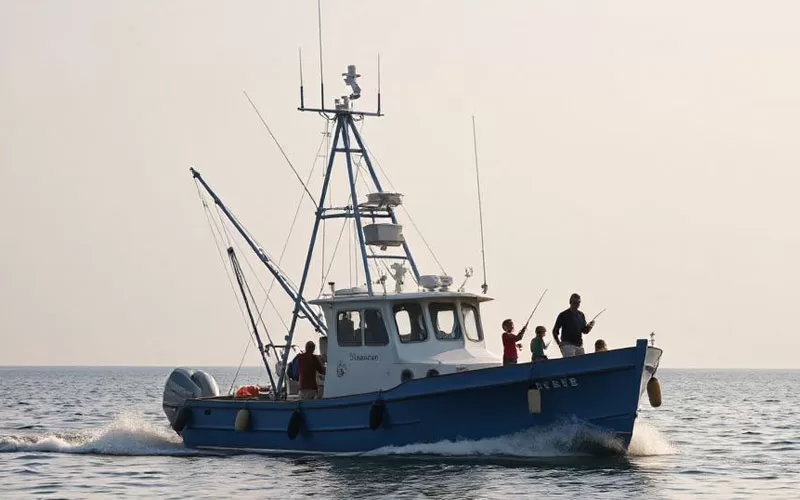
Planning a fishing trip is definitely an adventure, whether you’re experienced or a novice looking to cast your first line a well-planned fishing trip can lead to memorable experiences, relaxation, and the thrill of the catch. Here’s a step-by-step guide on how to plan the best fishing trip, ensuring you have all the essential information and tips for a successful and enjoyable outing.
Choose Your Destination
The first step is selecting the perfect destination. Consider the following factors:
- Type of Fish: Different locations are known for different species. Decide whether you want to fish for freshwater or saltwater species and research the best spots for your preferred catch.
- Accessibility: Choose somewhere that is easy to access, especially if you have limited time or if it’s your first fishing trip. Consider the distance, travel time, and the availability of accommodations.
- Season and Weather: Research the best time of year for fishing in your chosen location. Different fish species have peak seasons, and weather conditions can greatly affect fishing success.
Get the Necessary Licenses and Permits
Fishing regulations vary by location, so it’s essential to obtain the required licenses and permits. Check the local regulations for your destination, including:
- Fishing Licenses: Most places require a fishing license, which can often be purchased online or at local sporting goods stores.
- Permits: Certain areas may require additional permits for specific types of fishing, such as deep-sea fishing or fishing in protected waters.
- Regulations: Make sure you know all of the local fishing regulations, including catch limits, size restrictions, and protected species.
Plan Your Gear
Having the right gear is crucial for a successful fishing trip. Here’s a list of essential items:
- Fishing Rods and Reels: Choose the appropriate rod and reel for the type of fishing you plan to do. For example, a lightweight rod is ideal for freshwater fishing, while a heavier rod is better for saltwater fishing.
- Tackle Box: Stock your tackle box with hooks, sinkers, lures, and bait. The type of bait and lures you need will depend on the fish species you hope to catch.
- Fishing Line: Make sure you have the right strength and type of fishing line for your rod and the fish you’re aiming to catch.
- Accessories: Don’t forget items like a fishing net, pliers, a fish scaler, a first-aid kit, sunscreen, and insect repellent.
- Inflatable Boats: An inflatable fishing boat can be a great asset for a fishing trip, offering flexibility and access to spots that might be difficult to reach from shore. Inflatable boats are lightweight, making them easy to transport. Furthermore, they can be deflated and packed into a car trunk or carried to remote locations. Also, carry a garmin ps30 Down Transducer to locate fish with ease.
Pack Appropriately
In addition to fishing gear, you’ll need to pack other essentials for your trip:
- Clothing: Dress in layers so that you can adapt to any changing weather conditions. Consider waterproof clothing, a hat, and polarized sunglasses to protect yourself from both the sun and glare.
- Food and Drinks: Pack enough food and water for the duration of your trip. If you plan to cook your catch, bring the necessary cooking equipment.
- Camping Gear: If you’re planning an overnight trip, bring a tent, sleeping bag, cooking gear, and other camping essentials.
Plan Your Itinerary
A well-thought-out itinerary can enhance your fishing trip experience:
- Travel Arrangements: Plan your route and transportation to your fishing destination. If you’re traveling to a remote location, ensure you have a reliable map or GPS device.
- Fishing Spots: Research the best fishing spots in your chosen location. Local fishing reports and guides can provide valuable information on where the fish are biting.
- Activities: Plan other activities in case the fishing is slow. Hiking, bird watching, or exploring local attractions can add to the overall experience.
Stay Safe
Safety should always be a priority on a fishing trip:
- Weather: Check the weather forecast before your trip and be prepared for sudden changes.
- Communication: Inform someone of your plans and expected return time. Bring a mobile phone or communication device, especially if you’re fishing in remote areas.
- First Aid: Bring a first-aid kit and know basic first-aid procedures in case of emergencies.
Leave a Reply